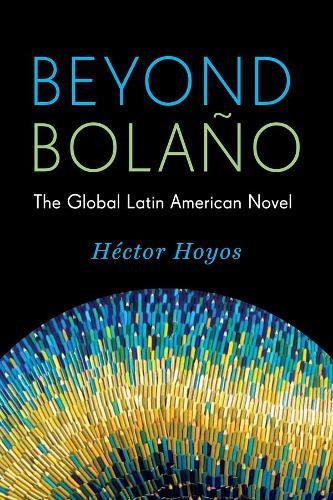Overview
Through a comparative analysis of the novels of Roberto Bolaño and the fictional work of César Aira, Mario Bellatin, Diamela Eltit, Chico Buarque, Alberto Fuguet, and Fernando Vallejo, among other leading authors, Héctor Hoyos defines and explores new trends in how we read and write in a globalized era. Calling attention to fresh innovations in form, voice, perspective, and representation, he also affirms the lead role of Latin American authors in reshaping world literature. Focusing on post-1989 Latin American novels and their representation of globalization, Hoyos considers the narrative techniques and aesthetic choices Latin American authors make to assimilate the conflicting forces at work in our increasingly interconnected world. Challenging the assumption that globalization leads to cultural homogenization, he identifies the rich textual strategies that estrange and re-mediate power relations both within literary canons and across global cultural hegemonies. Hoyos shines a light on the unique, avant-garde phenomena that animate these works, such as modeling literary circuits after the dynamics of the art world, imagining counterfactual ""Nazi"" histories, exposing the limits of escapist narratives, and formulating textual forms that resist worldwide literary consumerism. These experiments help reconfigure received ideas about global culture and advance new, creative articulations of world consciousness.
Full Product Details
Author: Héctor Hoyos (Assistant Professor, Stanford University)
Publisher: Columbia University Press
Imprint: Columbia University Press
Dimensions:
Width: 15.20cm
, Height: 2.50cm
, Length: 22.90cm
Weight: 0.539kg
ISBN: 9780231168427
ISBN 10: 023116842
Pages: 296
Publication Date: 27 January 2015
Audience:
Professional and scholarly
,
College/higher education
,
Professional & Vocational
,
Tertiary & Higher Education
Format: Hardback
Publisher's Status: Active
Availability: Manufactured on demand

We will order this item for you from a manufactured on demand supplier.
Language: English
Reviews
An outstanding example of scholarly writing and critical thinking. Beyond Bolano challenges conventional ways of talking about and teaching Latin American literature, while at the same time resisting a facile globalization whereby Latin American literature becomes a companion to the presumed centers of world literature. -- David William Foster, Arizona State University A must-read for anyone interested in the ongoing discussion on world literature, this book uses the work of Roberto Bolano to explore what contemporary Latin American literature can tell us about ideologies of the global. -- Theo D'haen, author of The Routledge Concise History of World Literature Hector Hoyos makes a strong argument for reading the novels of the Chilean author as an epochal shift from the national narrative to novels whose characters and events are situated within a global scenario. He argues convincingly that in contemporary fiction, settings such as the supermarket, the art world, and the narco territories? constitute such alephs. Focusing on the novels of Cesar Aira, Chico Buarque, Diamela Eltit, Fernando Vallejo, and Mario Bellatin, Beyond Bolano offers a stimulating discussion of this contemporary turn. -- Jean Franco, professor emerita, Columbia University Hector Hoyos offers a fascinating analysis of what the globe looks like from Latin America. An ambitious and necessary reframing of the world literature debates, Beyond Bolano is also an exemplary illustration of what textured literary analysis can tell us about the the geopolitics of cultural prestige. -- David Kurnick, Rutgers University
This is an outstanding example of scholarly writing and critical thinking. It challenges conventional ways of talking about and teaching Latin American literature, while at the same time resisting a facile globalization whereby Latin American literature a companion to the presumed centers of world literature. -- David William Foster, Regents' Professor of Spanish and Women and Gender Studies, Arizona State University
Author Information
Hector Hoyos is an associate professor of Latin American literature and culture at Stanford University, where he teaches contemporary fiction and literary theory. He holds a Ph.D. in Romance studies from Cornell University and degrees in philosophy and literature from the Universidad de los Andes in Bogota, Colombia.




